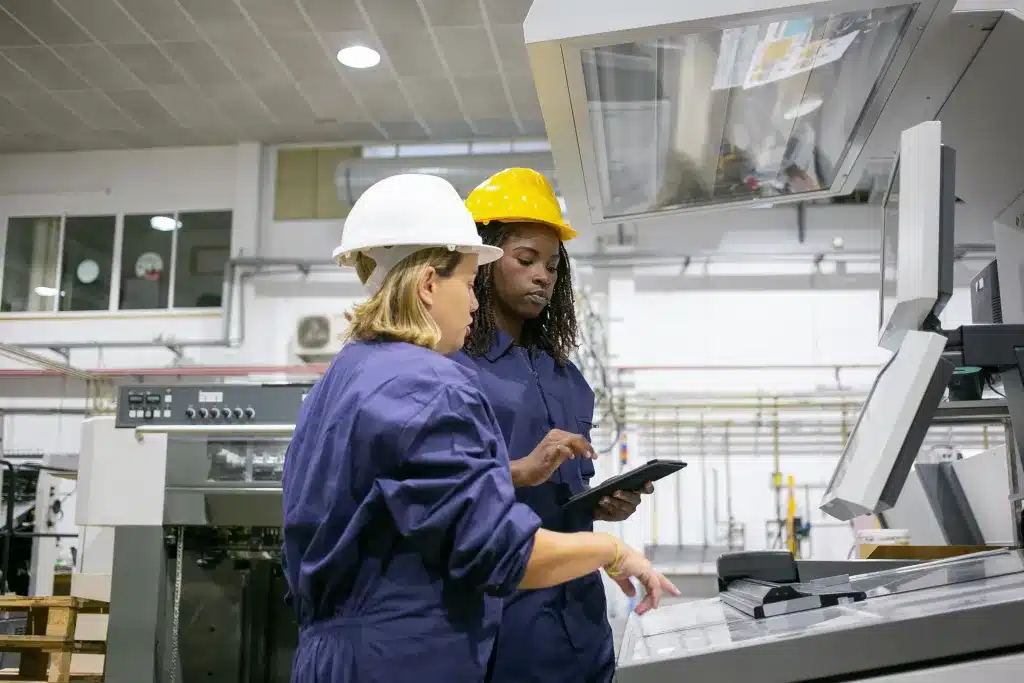Key Takeaways
- Frontline workers are crucial in driving AI adoption, reshaping the workforce.
- AI integration is better implemented with contributions from employees at all levels, not just technical experts.
- Research shows a significant cultural shift is needed to sustain AI transformation across organizations.
- Non-technical employees are taking the lead in AI initiatives, highlighting the importance of their role in tech adoption.
- Organizations that enable frontline workers in AI decisions create new career pathways and empower employees.
- There is a notable redistribution of influence within companies, as power shifts from technical experts to non-technical staff.
In the rapidly evolving landscape of artificial intelligence (AI) integration, companies are discovering a compelling truth: frontline workers are not just implementers of AI tools but pivotal figures in driving AI adoption and transforming the workplace. This blog dives into the impact of empowering frontline workers, the necessary cultural shifts, and strategies for successful AI integration spearheaded by non-technical employees.
The Emerging Role of Frontline Workers in AI Adoption
Artificial intelligence is no longer the exclusive domain of IT departments or technical experts. Instead, frontline workers, who interact with customers and products daily, are emerging as key players in testing, implementing, and improving AI systems within organizations. Their proximity to actual work processes gives them unique insights that drive pragmatic AI application, making AI adoption more relevant and impactful.
Why Collaboration Across All Levels Matters
AI integration should transcend departmental silos, leveraging insights from employees at all organizational levels. By fostering an inclusive approach:
- Enhanced Innovation: Combining technical expertise with practical knowledge leads to more comprehensive AI solutions.
- Increased Acceptance: Employees involved in AI decisions are more likely to support and adapt to technological changes.
- Reduction in Resistance: When employees see the benefits for their own roles, they advocate for AI tools that enhance rather than replace human tasks.
The Cultural Shift Imperative
Successfully embedding AI in an organization involves significant cultural change:
- Creating an AI-Friendly Environment: Encourage open communication and continuous learning to mitigate fear of AI. Training programs tailored to specific job roles can ease transitions.
- Redefining Leadership Models: Traditional top-down authority is shifting towards more collaborative and inclusive structures, where every employee contributes insights to AI strategy.
- Valuing Diversity of Thought: Incorporating diverse perspectives enhances AI’s applicability and aligns it more closely with varied user needs.
Empowering Non-Technical Employees
Organizations that empower frontline workers not only see improved AI adoption rates but also open new career pathways and foster a culture of innovation:
- Skill Development Programs: Invest in training that bridges gaps between technical and non-technical roles, enhancing problem-solving capabilities.
- Recognition and Rewards Systems: Acknowledge contributions across various levels to motivate ongoing participation and innovation in AI projects.
- Decentralizing Decision-Making: Allow non-leader staff members to spearhead initiatives, cultivating a sense of ownership and accountability in AI projects.
The Shift in Organizational Influence
As AI implementation infiltrates all business processes, there’s a notable shift in influence within organizations. The traditional power held by technical experts is redistributing towards those on the frontlines who are driving practical applications. This democratization of influence is particularly evident in firms that successfully integrate AI tools with input from their diverse workforce.
Key Strategies for Engaging Frontline Workers in AI Adoption
Here are steps organizations can take to ensure effective engagement of frontline workers in AI initiatives:
- Inclusive Brainstorming Sessions: Regular forums where all employees can suggest improvements or voice concerns about AI applications.
- Feedback Loops: Continuous channels for employees to provide feedback on AI systems in use and propose adjustments.
- Pilot Programs: Test AI systems in a controlled environment with frontline worker participation before organization-wide rollout.
- Workshops and Seminars: Disseminate knowledge about AI and its potential impacts directly to those affected.
Embracing frontline workers as active participants in AI adoption not only enhances the effectiveness of tech integration but also fosters a cooperative and adaptable workplace. Companies that integrate these practices are better positioned to leverage AI’s full potential, making work processes smoother and more efficient.




